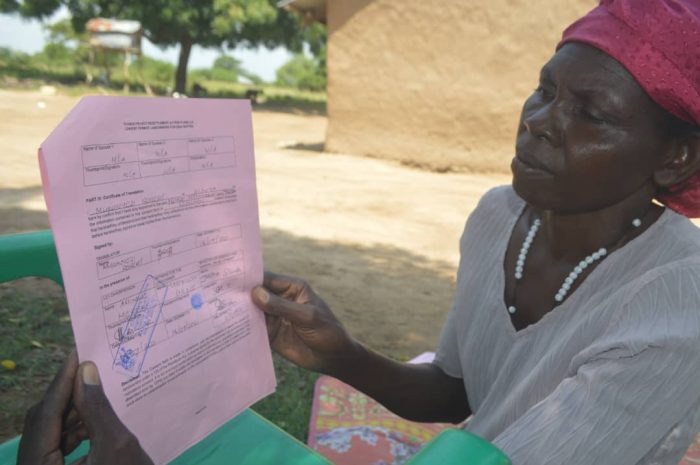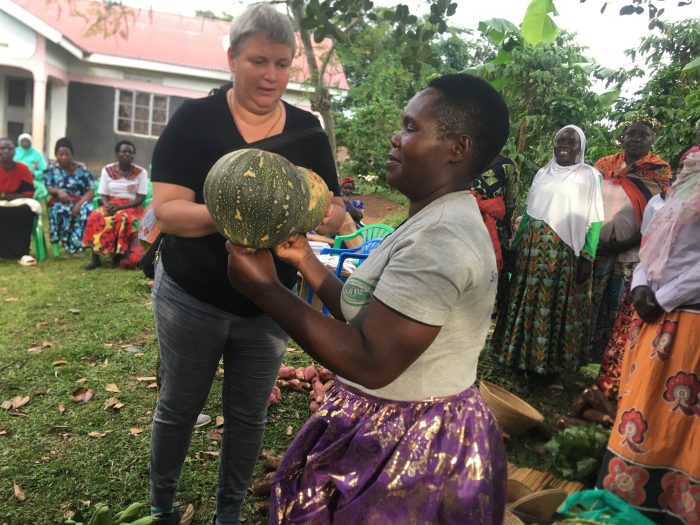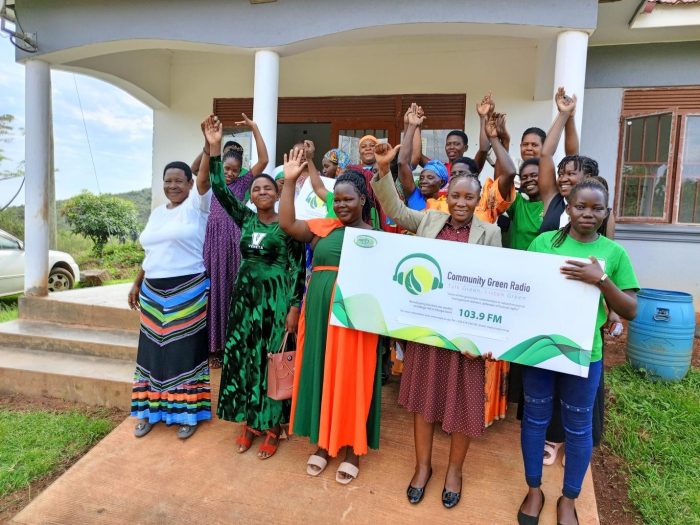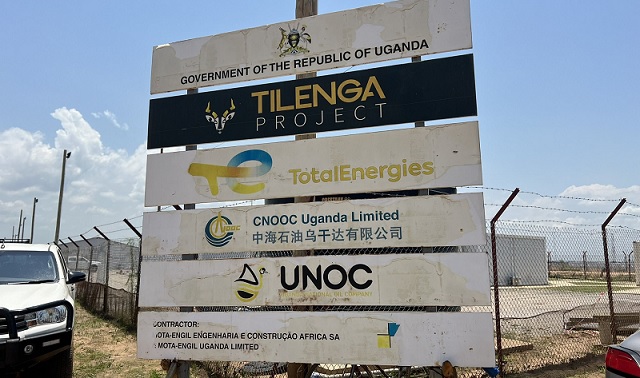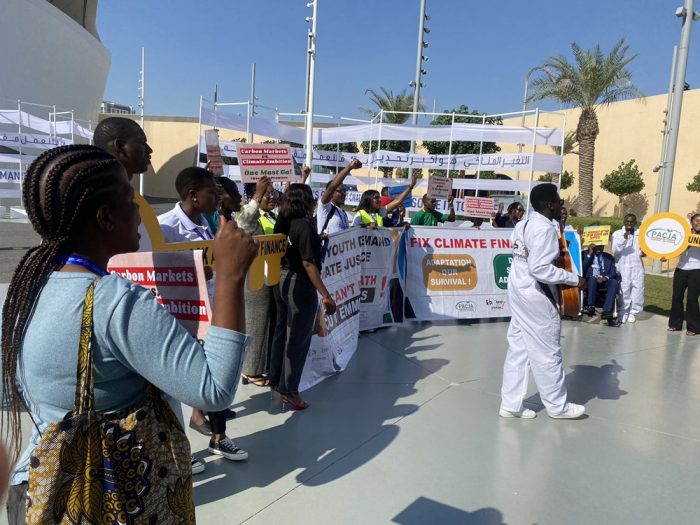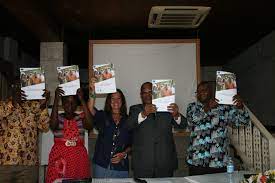
 NAPE together with her partners (Gaia, African Biodiversity Network-ABN & other Civil Society Organizations) launched a report to the African Commission.
NAPE together with her partners (Gaia, African Biodiversity Network-ABN & other Civil Society Organizations) launched a report to the African Commission.
The African Court has amongst its nearly 200 cases, ruled on two milestone cases, namely the Okiek and the Endorois cases, which provided powerful precedents confirming the inalienable rights to land and custom that resides in the laws of indigenous peoples. These two cases are part of the growing legal jurisprudence in Africa that supports the recognition of African, a priori, law. These laws are derived from understanding the primary laws of the Earth, to which humans need to comply, as a responsibility to generations yet unborn.
Speach by the guest of honor:
Ladies and Gentlemen.
Good afternoon
Today we are gathered to attend the launch of a “Submission to the African Commission” which calls for “legal recognition of Sacred Natural Sites and Territories, and their Customary Governance Systems.”
It is my honour to say a few introductory words with regard to the document that you have before you, and why I believe the launch of the submission is an important step forwards in the quest for human rights and advancement of our beloved Africa.
Firstly, before discussing the submission, I will very briefly describe the African Commission, that important entity that aspires to guide countries in Africa in their collective desire to emancipate and secure better lives for our peoples. Then I will describe the Submission.
The African Commission
The Commission was established in 1986 in accordance with article 30 of the African Charter, and is now located in Banjul, The Gambia. It is tasked with promoting and protecting human rights by interpreting the African Charter, and reports to the Assembly of Heads of State and Government of the African Union. The Commission consists of 11 Commissioners serving for six-year terms, and its duties include examining national reports on the situation of human rights which each State is required to submit every other year, as well as adopting resolutions and declarations, making country visits, and `adjudicating communications (complaints) submitted by Member States, individuals, and NGOs. It has also developed a system of “Special Measures,” consisting of:
1. Special Rapporteurs to whom specific allegations of human rights violations in specific areas may be brought, and
2. Working Groups that monitor and investigate specific questions linked to the Commission’s work. Finally with the creation of the African Court on Human and Peoples’ Rights the Commission can also submit cases to the Court, which it has done on a number of occasions. The Commission’s reports and decisions are not formally binding on members, but decisions taken by the Assembly have significant weight both in politics and in international law, and become important factors that influence law in member countries.
In summary then, the African Commission is a powerful and influential “super-parliament” in Africa, formed by Africans in order to ensure that progress is made towards the ideals set out in the African Charter. As Ugandans with an interest in the subject matter of the submission, have a potential and influential role to play.
The Submission to the African Commission regarding Sacred Natural Sites.
The topic of the submission before you is one dear to the heart of Africans, namely the absolutely vital issue of land, the natural world which sustains life, and the “African values” that are referred to repeatedly in the African Charter. In particular, the document aims to address the aspiration set out in the preamble to the Charter, to “affirm the dignity and human rights of the African peoples as part of the modern world, whilst honouring the ‘historic traditions’ that are unique to the indigenous inhabitants of the continent.”
The central plea contained in the submission is a statement by “Custodians” of Sacred Natural Sites and Territories in a number of African countries. In their powerful and moving statement they affirm the importance not only of the sacred sites in their territories, but equally of the ancient traditional or customary governance systems. These systems constitute a form of law which predated the subsequent laws of Colonial powers, and which underpin the identity and ways of life of African communities. They provide an emotive and powerful plea for the preservation and recognition of these sacred sites, the territories in which they are embedded together with the customary governance systems that have protected them for generations.
The document proceeds to describe plural legal systems in Africa, pointing out how in many countries of the world where Colonial powers usurped the power of indigenous inhabitants, the process of honouring and reclaiming the original (or a priori) laws is under way. The point is made that different legal systems can happily co-exist, but it is important particularly in Africa that the ancestral legal governance systems that define our very African-ness, should be strongly recognized, protected and maintained.
The Earth is reaffirmed in the submission as being the primary source of traditional or customary governance laws and systems, a fact which was emphasized by Thomas Berry, the father of the modern revival of the indigenous understanding of law and its source, known as “Earth Jurisprudence.” He referred to Earth centered, rather than human-centered jurisprudence, to a priori laws (laws which existed prior to all others) based upon and derived from the laws of the Earth that are inherent in the African Customary laws. He makes the point that the current planetary destruction, evidenced in climate change, mass species extinction, growing inequity between humans and other crises result from a failure of complying with the primary laws which govern life – derived from the laws of the Earth. The current industrial legal system legitimizes destructive projects in the name of economic growth, but this is increasingly at the expense of the very conditions for life – contaminating water and land, leading to massive destruction of biodiversity and ancestral lands.
Finally the document sets out how recognition of Indigenous, Traditional and Customary Governance systems and ways of understanding laws are increasingly being recognized across the planet as a reference for how to deal with these crises. It describes how in Africa too this process is also moving apace. The African “Model Law for the Protection of Local Communities, Farmers and Breeders” is an example of our own initiative taken back in the 1990s. The African Court has amongst its nearly 200 cases, ruled on two milestone cases, namely the Okiek and the Endorois cases, which provided powerful precedents confirming the inalienable rights to land and custom that resides in the laws of indigenous peoples. These two cases are part of the growing legal jurisprudence in Africa that supports the recognition of African, a priori, law. These laws are derived from understanding the primary laws of the Earth, to which humans need to comply, as a responsibility to generations yet unborn.
The call to action
The submission that is being launched today is aimed at all individuals involved in the various working groups, subcommittees, and legislative bodies both in the African Commission as well as in member states. The call to action assumes that there is consensus about the importance of Africa protecting and valuing these traditional or customary governance systems, and the custodian communities whose elders tirelessly work to protect the sacred natural sites at their heart of their ancestral governance systems.
The African Commission as well as member states are called upon to take appropriate legislative action. In addition, the custodian communities call upon their own governments to play an active role in recognizing and respecting Sacred Natural Sites and Territories, as part of their commitment to the cultural and human rights of their citizens. These processes take time, but champions are required to advance the cause.
In conclusion, at its very core, this submission contains an urgent plea to governments to play an active role in the most important responsibility of all, namely towards Mother Earth – the source of life for all.
The report comes at a time when the rights of communities over land, food and cultural heritage are threatened by globalization of the industrial growth economy. There is rapid growth of large infrastructure developments, and various forms of landgrabbing such as plantations industrial agriculture, and extractive industries.
The African Commission in Uganda appreciates the role traditional communities play in the protection and custodianship of seed and food diversity, our natural heritage e.g. forests, biodiversity, forests, water bodies and wetlands.In order to continue to play their ancestral role, which they have maintained for generations, their customary rights and governance systems need to be recognized and supported. The challenges of climate change require that we safeguard our natural and cultural heritage so that the next generations have the conditions to deal with these challenges.
I therefore call upon the government, the civil society and cultural institutions to embrace and support the recommendation of this report in order for us to protect our Mother Earth and her diverse species and human cultures which have sustained conditions for life’s continuity for generations. It is our responsibility to the next generation to do so.
May I take this opportunity to applaud NAPE, the Gaia Foundation and African Biodiversity Network for their leadership in mobilizing communities and resources to come up with this report.
I would like to pledge the Commission’s commitment to discuss and implement the recommendations of this report and support all the efforts to promote the rights of communities in their quest for recognition of their cultural heritage and customary governance systems.
By the virtue of the authority entrusted upon me, I hereby launch this report.
Thank you very much.
Hon Med Kaggwa
Chairman: Uganda Human Rights Commission
26 May 2016

